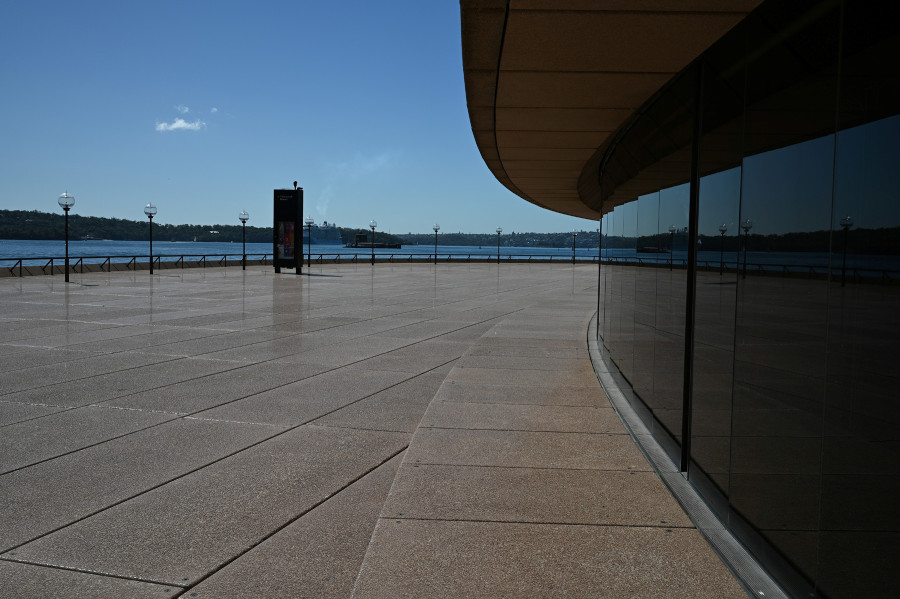National
As the world goes on lockdown, Nepali students find themselves out of a job
With the Covid-19 outbreak shuttering businesses, Nepali students in foreign lands who work part-time to fund their studies are worried about paying their bills.
Elisha Shrestha
Radhika Shrestha has been living in self-imposed quarantine in her tiny room in Melbourne, Australia for the past week. Every day, she attends her university’s online classes, an alternative learning medium assigned in an attempt to deal with the Covid-19 outbreak. But as she’s not working at the moment, she is also stressed—about her financial status, rather than Covid-19.
Shrestha was laid off from her job as a housekeeper after the government of Australia strongly urged people to remain in self-imposed quarantine to mitigate the spread of the coronavirus.
Like many Nepali students abroad, 25-year-old Shrestha, who is doing her master’s, is a self-financed student. In order to cover her expenses, she worked 20 hours a week, but as city after city goes under lockdown, students like Shrestha are unable to work and make money, leaving them in a precarious situation where they might not be able to pay their college fees or even provide for their basic needs.
“It’s already more than 10 days since I was laid off from work. I don’t know how I will be able to pay my tuition fee and rent if the shutdown continues for long,” said Shrestha, who pays around 21,000 Australian dollars annually in tuition fees.
There are an estimated 52,000 Nepali students studying in Australia, according to 2019 data from the Australian Department of Education. Bijay Sapkota, former president of the Council of International Students Australia, had told the Post in December that most Nepali students depend on part-time work to fund their studies.
According to Rahul Bhandari, who is a housekeeping manager at a Sydney hotel, the majority of Nepali students in Australia work in hospitality, a sector that’s been largely affected by Covid-19.
“There are around 300 Nepali people working in the hotel where I work and the majority of them are students,” said Bhandari. “Due to the Covid-19, within two weeks, the occupancy rate of the hotel dropped to 25 percent from 90 percent. As a result, more than 50 percent of employees are out of work.”
As the majority of Nepali students cannot afford to study without working, they are likely to try to work, even when there is a health risk, said Bhandari. There is already news that a Nepali student in Tasmania failed to comply with medical advice to self-isolate after he experienced cold-like symptoms. Instead, he carried on work.
In an attempt to address the plight of Nepalis, the Non-Resident Nepali Association of Australia (NRNA Australia) has decided to provide free meals for a month to all Nepali students affected by Covid-19 and its consequences.
There are already more than 1,000 confirmed cases of Covid-19 in Australia, with 7 reported deaths.
In Europe too, Nepali students are facing similar problems. Like Radhika, 24-year-old Sajana Pokharel is doing her masters at the Norwegian University of Science and Technology and she too is worried about her financial situation. It has been almost two weeks since she was temporarily laid off from her job as a waitress.
“For now, I am covering my expenses through my savings, but if this condition continues, I will be in big trouble,” said Pokharel.
Although the tuition fee per semester in Norway is just around Rs 12,000, students need a minimum of Rs 150,000 per month to cover other expenses, including travel costs, food and rent.
According to Dwarika Maharjan, a member of the Non-Resident Nepali Association in Norway (NRN Norway), there are around 500 to 600 Nepalis studying in Norway. While the Norwegian government has provisions for financial aid, even for temporary residents, during times of crisis, there aren’t many avenues of aid for people with student visas.
“Although the government expects international students to have around 15 lakhs [Rs 1.5 million] per year in their bank to cover their expenses, a majority of students rely on part-time jobs, which they are allowed to work 20 hours per week, to fund their stay in Norway,” said Maharjan.
According to NRN Norway President Nayan Malla, the association in Norway has formed a committee to provide financial assistance for Nepali students in need.
“Since NRN Norway doesn’t have enough of a budget to provide financial assistance to all the students here, we are planning to help those who are in critical financial situations, either by providing them with food or a place to live,” said Malla.
As of Sunday, 1,926 people had been infected with Covid-19 in Norway.
While Shrestha and Pokharel are facing financial difficulties, Binita Pradhan, who is in the final year of her MBBS programme at the Qiqihar Medical University in China’s northeastern Heilongjiang Province, is facing academic problems. She, along with other international students, has been confined to her dormitory for 56 days now, leaving her unable to continue her internship, a requirement for her medical degree. There are 11 other Nepalis studying at the same university.
Pradhan said that although she could have returned to Nepal in the initial stages of the outbreak, she chose to remain in China as the Nepal Medical Council doesn’t allow Nepalis studying in China to do their internships in Nepal.
“If I had returned to Nepal, it would have been difficult for me to come back to China again. I have to complete my internship in order to take the NMC entrance exam on time,” said Pradhan. “For now, we’re just staying inside and studying.”
So far, there have been 303,659 confirmed cases of Covid-19 across the world with 13,424 deaths.




 14.24°C Kathmandu
14.24°C Kathmandu (1).jpg)















